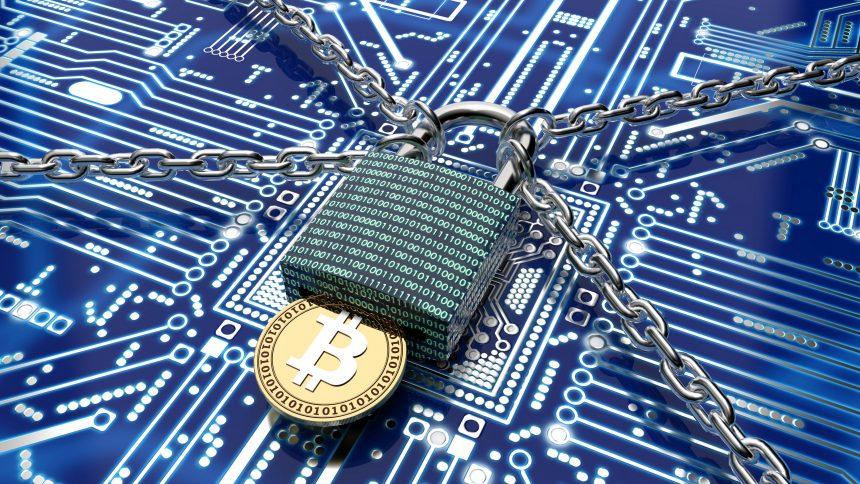The Woofi Wallet Connection scam is a recent, highly deceptive phishing scheme designed to steal sensitive information from unsuspecting cryptocurrency users. By mimicking legitimate digital wallets and services, cybercriminals use fraudulent prompts to trick victims into sharing personal and financial data. The scam is particularly dangerous for those who actively use cryptocurrency wallets and engage in decentralized finance (DeFi) transactions, as it can swiftly lead to significant financial loss and identity theft. In this article, we’ll discuss the Woofi Wallet Connection scam, explore its harmful actions and consequences, list detection names used by cybersecurity tools, and offer a detailed removal guide. We also provide best practices to help you stay secure in the future.
Remove annoying malware threats like this one in seconds!
Scan Your Computer for Free with SpyHunter
Download SpyHunter now, and scan your computer for this and other cybersecurity threats for free!
Understanding the Woofi Wallet Connection Scam: Actions and Consequences
The Woofi Wallet Connection scam typically begins with a fake connection request that looks authentic, often appearing to come from a trusted wallet service or DeFi platform. When a user engages with these fake prompts, they are asked to log in or provide sensitive information like their private wallet key, seed phrase, or other details critical for accessing digital assets. These details are then relayed directly to the scammers, who swiftly exploit them to drain the victim’s funds, access accounts, or execute unauthorized transactions.
The consequences of falling for this scam can be severe:
- Financial Loss: Funds can be instantly withdrawn from connected wallets.
- Identity Theft: Personal data collected in these scams can be used in future fraudulent schemes.
- Account Compromise: Scammers may gain access to other linked accounts, which they can exploit for further financial gain.
Detection Names for Woofi Wallet Connection Scam
Many cybersecurity tools detect the Woofi Wallet Connection scam and similar threats under various names. While specific detection names vary across security providers, common labels include terms like “Trojan.Generic,” “PhishingWalletPrompt,” and “FakeCryptoLogin.” Security software brands may identify it with terms associated with deceptive wallet connections, phishing kits, or crypto-stealing malware.
Similar Threats
The Woofi Wallet Connection scam is part of a broader category of cryptocurrency phishing scams. Here are a few similar threats that have been known to target crypto users:
- MetaMask Phishing Scam: Targets users by prompting them to log into fake MetaMask portals.
- Uniswap Connection Scam: Tries to trick users into connecting their wallets to malicious Uniswap look-alikes.
- Phantom Wallet Phishing Scam: Aims to exploit Phantom wallet users through fake websites and email prompts.
Removal Guide for Woofi Wallet Connection Scam
If you suspect that your device or wallet may have been compromised by the Woofi Wallet Connection scam, follow these steps to protect your digital assets and remove the malware if it’s present:
- Disconnect and Revoke Wallet Access
- Disconnect Suspicious Accounts: Open your wallet app and navigate to the list of active sessions or connected sites. Disconnect from any suspicious or unfamiliar accounts immediately.
- Revoke Permissions: Visit a blockchain-based permission management tool, such as Etherscan’s Token Approval Checker, to revoke permissions granted to any potentially harmful addresses.
- Run a Complete Malware Scan
- Use Anti-Malware Software: Download and install an effective anti-malware tool, like SpyHunter, to scan your computer for any potential threats.
- Full Scan Mode: Run a full scan to ensure the detection of any malware that may have gained access to your system.
- Change Login Credentials
- Change Wallet Passwords: Log in to your crypto wallets and change passwords or PINs to regain control.
- Update Passwords for Linked Accounts: If any connected accounts were involved, update the login credentials immediately.
- Check for Unauthorized Transactions
- Review Transaction History: Check for any unusual transactions and, if possible, report them to your wallet provider or platform to halt further activity.
- Report Stolen Assets: Many crypto platforms and wallet services provide an option to flag or report stolen assets, which may help in recovery.
- Enable Multi-Factor Authentication (MFA): For wallets and any linked email or DeFi accounts, activate multi-factor authentication. This extra layer of security can prevent unauthorized access.
- Remove Phishing Emails or Texts
- Delete Phishing Messages: If the scam reached you through email or text, delete the message and block the sender.
- Mark as Spam or Report: Use the reporting features of your email provider or SMS app to flag the source as spam.
- Clear Browser Cache and Cookies
- Browser Settings: Go to your browser settings and delete all cache, cookies, and other stored data to remove any malicious scripts that might be tracking your activities.
- Check for Browser Extensions: Ensure no unfamiliar extensions are installed; if there are any, remove them.
Best Practices for Preventing Future Infections
- Stay Alert for Phishing Attempts
- Verify the Source: Before connecting your wallet to any platform, verify that it’s the official website or app.
- Watch for Red Flags: Be cautious of messages with urgent prompts or claims that your account needs immediate action.
- Install and Regularly Update Anti-Malware Software: Use reputable anti-malware tools like SpyHunter to protect your device from malware threats. Regularly updating the software ensures you’re protected against the latest threats.
- Use Strong and Unique Passwords: Avoid reusing passwords for your cryptocurrency wallets and linked accounts. Strong, unique passwords reduce the risk of account compromise.
- Avoid Clicking on Links in Unsolicited Emails or Messages: Do not click on any links in unexpected emails or texts claiming to be from wallet providers or financial institutions. Always navigate to official websites directly.
- Use Hardware Wallets for Larger Funds: Hardware wallets offer enhanced security since they store private keys offline, reducing the risk of cyber theft.
Download SpyHunter Anti-Malware for Maximum Protection
To prevent future infections from scams like the Woofi Wallet Connection and other cyber threats, consider installing SpyHunter. This powerful anti-malware tool provides robust real-time protection, blocking malicious activities and detecting hidden malware before it harms your system. Download SpyHunter today for a free scan to secure your system against these evolving threats.





